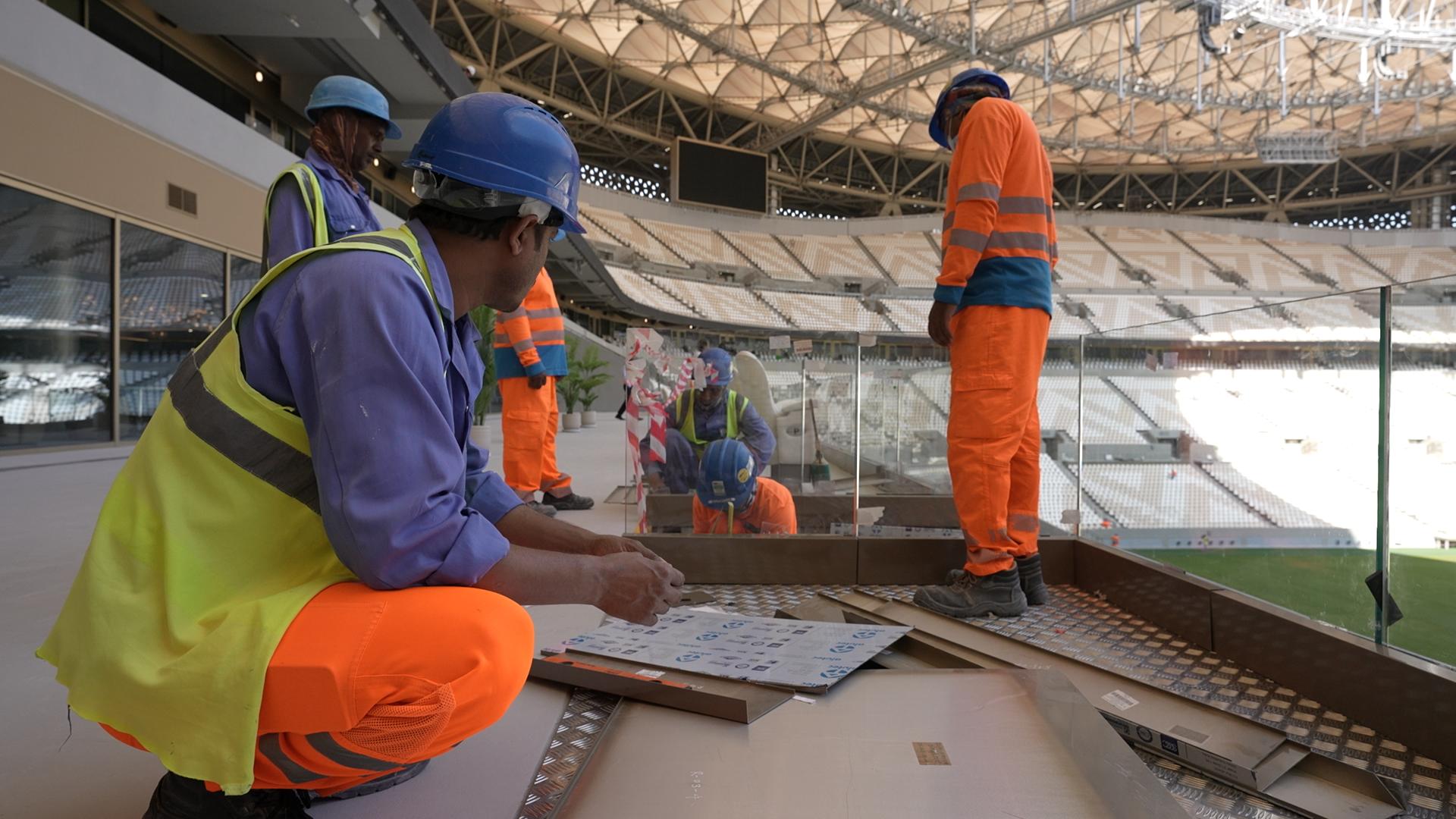Danish FA remains cautious on backing calls for a $440m Qatar worker compensation package.
The Danish Football Association (DBU) said it needs “some more information” before supporting Human Rights Watch’s (HRW) call for a $440m package to compensate the families of workers who died while working on World Cup projects in Qatar, instead calling for the establishment of a migrant centre, according to a report.
The federation’s President Jesper Moller stated that more details are needed by the DBU before the governing body can evaluate the request for compensation, in comments made on the sidelines of the Play The Game conference, Inside Football reported.
“It should be pointed out who pays? And where does the money come from? And where does the money go to? Our focus is on a migrant centre,” the federation’s President Jesper Moller said.
“Reports from Qatar show that it could be a very, very good idea to have this migrant centre. From the Danish point of view, we need to work together with the locals.”
The president’s comments come as a surprise considering Denmark’s repeated calls to boycott the upcoming World Cup in Qatar over alleged human rights concerns. Those campaigns have been shelved since Denmark qualified for the tournament.
The body’s call to opt for “a dialogue” with Qatar to introduce a series of measures to help raise awareness about any rights issues marks a shift its earlier stance to outright boycott.
Among the measures by DBU is a reduction in the number of trips to Qatar to prevent commercial activities that promote the World Cup hosts’ events as well as allowing for criticism if needed.
HRW calls
In May, Human Rights Watch and a number of rights groups made an appeal for workers in Qatar and their families to receive compensation for the human rights violations they had experienced.
“FIFA needs to take urgent action to live up to its own human rights commitments & to make amends to workers who have paid the ultimate price for FIFA’s original failure to do human rights due diligence,” said HRW’s Minky Worden, highlighting the group’s call for $440 million compensation package for workers.
However, the demand for financial recompense for the workers has received little response from FIFA, the event’s organisers, or any of the 32 teams that will compete in the World Cup this year.
Even those who suggested a ‘boycott’ earlier last year have remained silent.
FIFA President Infantino mentioned “compensation” in his speech at the last UEFA Congress in Vienna, but the body later clarified that the official meant ensuring the proper payment of employee salaries and not to compensate for losses – as was proposed by HRW.
The Football Association, the German DFB, and US Soccer, have yet to comment.
“The lessons from Qatar’s World Cup should be that workers do not need to die to deliver any mega sporting event and that a human rights framework is needed to protect everyone touched by football’s flagship event,” said Worden.
Opportunity for change
Doha has faced international scrutiny over conditions for migrant workers in the country and the lack of laws to protect them. However, the Gulf state has since introduced historic reforms over the past years in an effort to ensure the rights of workers are respected and upheld.
Some of the reforms included the dismantling of the controversial Kafala system that stopped workers from freely changing jobs. Another is the region’s first ever non-discriminatory minimum wage law, introduced last year.
Qatar’s major transformation since winning the bid for the FIFA World Cup 2022 has been carried out in just a few years, FIFA President Gianni Infantino said in Doha last week, noting such moves took hundreds of years in Europe.
“It took us in Europe hundreds of years to arrive where we are now…in this part of the world, in Qatar, it has been done in a few years so it’s clear that at the beginning we need some time to assess it,” Infantino said at the Qatar Economic Forum in Doha on Wednesday.
The FIFA president noted the World Cup in Qatar served as an opportunity for change in the country, though he said he believes “progress would have been done anyway”.







